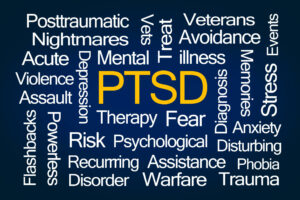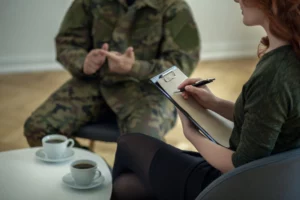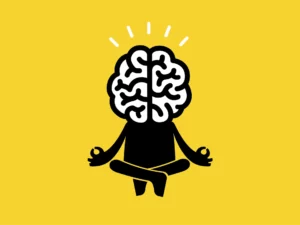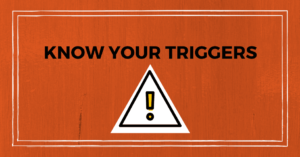Combatting veteran PTSD can be a difficult task. Many veterans struggle to overcome traumatic experiences from their time in the military. After all, how do you erase the memories of traumatic experiences that have shaped your life for years? It’s not easy, but it is possible. In this blog post, we will discuss 11 of the most effective methods to combat veteran PTSD. If you or someone you know is struggling with PTSD, please don’t hesitate to seek help!
Defining Veteran PTSD

Veterans are perhaps the most susceptible to developing PTSD. This is due to the fact that they have often experienced traumatic events during their time in service. Whether it be combat, witnessing atrocities, or losing comrades, these experiences can leave a lasting impact on a person’s mental health.
PTSD is a mental health condition that can develop after exposure to a Traumatic Event. Symptoms of PTSD can include flashbacks, nightmares, anxiety, depression, and more. These develop as an aftermath of the individual struggling to process the event(s) they experienced.
There are many reasons why someone might develop PTSD after a Traumatic Event. It could be due to genetics, pre-existing mental health conditions, the severity of the event, and more. For many people, these symptoms can be debilitating and make it difficult to live a normal life.
11 Strategies To Combat Veteran PTSD
There are many treatment options available for PTSD, but not all of them are effective for everyone. That’s why it’s important to find what works best for you. Here are some of the most effective methods to combat veteran PTSD.
Seek therapy
This is the foremost step to getting better. Many veterans are reluctant to seek help because they feel like they need to be strong. However, admitting that you need help is a strength in itself. There are many different types of therapy available, so find one that suits you best. Some of the most common types of therapy for treating PTSD can include the following.

- Cognitive Behavioral Therapy (CBT): CBT is regarded as the most effective form of therapy for treating PTSD. It helps patients to understand and change their thoughts and behaviors.
- Prolonged Exposure Therapy (PE): This type of therapy focuses on helping patients face their fears head-on. By gradually exposing them to the things they’re afraid of, they can eventually learn to cope with them.
- Eye Movement Desensitization and Reprocessing (EMDR): EMDR is a newer type of therapy that has shown to be effective in treating PTSD. It uses eye movements and other forms of stimulation to help patients process their trauma.
- Narrative therapy: Narrative therapy is a type of therapy that helps patients tell their stories. This can be done through writing, art, or simply talking about their experiences. By telling their story, patients can begin to make sense of their trauma and start to heal.
- Hypnotherapy: This is a type of therapy that uses hypnosis to help patients relax and deal with their trauma. It involves putting the patient into a trance-like state where they can be more open to suggestions.
- Psychodynamic therapy: Psychodynamic therapy is a type of therapy that focuses on the unconscious mind. It can help patients to understand the root cause of their PTSD and begin to work through it.
- Client-centered therapy: Client-centered therapy is a type of therapy that focuses on the needs of the patient. It helps patients to feel heard and understood.
All these therapies can be effective in treating PTSD. It’s important to find one that works best for you. In some cases, a therapist may also use a combination of different therapies to treat PTSD.
Consider medication
In some cases, therapy alone may not be enough to treat PTSD. In these cases, prescription medication is often used to help patients cope with their symptoms. Some of the most common medications used to treat PTSD can include the following.
- Prazosin: Prazosin is a medication that was originally developed to treat high blood pressure. However, it has also been found to be effective in reducing the symptoms of PTSD. Prazosin works by blocking the action of norepinephrine.
- Antipsychotics: Antipsychotics are a type of medication that is typically used to treat psychosis. However, they can also be effective in treating the symptoms of PTSD. Antipsychotics work by reducing the activity of certain chemicals in the brain.
- Benzodiazepines: Benzodiazepines are a type of medication that is typically used to treat anxiety. However, they can also be effective in treating the symptoms of PTSD. Benzodiazepines work by depressing the central nervous system, which can help to reduce the symptoms of PTSD.
- Adderall: Adderall is a medication that is typically used to treat attention deficit hyperactivity disorder (ADHD). However, it can also be effective in treating the symptoms of PTSD. Adderall works by increasing the levels of norepinephrine and dopamine in the brain.
- Antidepressants: Antidepressants are another type of medication that can be used to treat the symptoms of PTSD. Antidepressants work by increasing the levels of serotonin in the brain, which can help to improve mood and reduce the symptoms of PTSD.
All these medications have been found to be effective in treating PTSD. However, it’s important to speak with a doctor before starting any medication. Since medications also have certain side effects, it’s important to make sure they are the right choice for you.
Adapt to mindfulness and relaxation
 Since PTSD is a very emotionally taxing and stressful disorder, it’s important to find ways to relax and de-stress. One way to do this is through mindfulness and relaxation. Mindfulness is the practice of being present in the moment and focusing on your breath. It can help to calm the mind and ease stress. Relaxation is another way to help ease the symptoms of PTSD. Relaxation can help to reduce stress and improve mood. It also can help to improve sleep.
Since PTSD is a very emotionally taxing and stressful disorder, it’s important to find ways to relax and de-stress. One way to do this is through mindfulness and relaxation. Mindfulness is the practice of being present in the moment and focusing on your breath. It can help to calm the mind and ease stress. Relaxation is another way to help ease the symptoms of PTSD. Relaxation can help to reduce stress and improve mood. It also can help to improve sleep.
Both mindfulness and relaxation can be helpful in treating PTSD. However, it’s important to find what works best for you. Everyone is different, so what works for one person may not work for another. Some examples of these things are:
- Yoga
- Meditation
- Deep breathing exercises
- Progressive muscle relaxation
- Guided imagery
All of these things can be helpful in treating PTSD. It’s important to find what works best for you and to stick with it.
Try alternate approaches
With advancements in mental health care, there are now many different types of alternative approaches that can help in treating PTSD. These approaches can include the following.
- Animal-assisted therapy: Animal-assisted therapy is a type of therapy that involves interaction with animals. This type of therapy can help to reduce stress and improve mood. It involves dogs, cats, bunnies, horses, and other animals.
- Adventure therapy: Adventure therapy is a type of therapy that involves activities such as hiking, camping, and rock climbing. This type of therapy can help to reduce stress and improve mood.
- Art therapy: Art therapy is a type of therapy that involves the use of art to express emotions. This type of therapy can help to improve mood and reduce stress. It consists of art, music, dance, and drama. These methods help an individual be more creative and have fun.
- Nature therapy: One of the most effective treatments for PTSD is nature therapy. Research shows that spending time in nature can help reduce symptoms of anxiety and depression, and can also help improve sleep quality. There are a number of ways to get involved in nature therapy, including spending time in parks or gardens, going for hikes or walks in nature, or even just spending time outdoors in your own backyard.
- Acupuncture: Acupuncture is a type of traditional Chinese medicine that involves the insertion of needles into specific points on the body. This type of therapy can help to improve mood and reduce stress.
- Aromatherapy: Aromatherapy is a type of therapy that involves the use of essential oils. This type of therapy can help to improve mood and reduce stress. It works by inhaling the scent of the oils, which can help to relax the body and mind.
- Massage therapy: Massage therapy is a type of therapy that involves the use of touch to relax the body. It is a popular treatment for conditions such as anxiety, stress, and depression.
All of these things can be helpful in treating PTSD. It’s important to find what works best for you and to stick with it. You may have to test several things before you discover what works best for you.
Join support groups
 PTSD can be a very isolating experience. It can also be a root cause of a very negative self-image. Joining a support group can help to reduce isolation and improve self-esteem. Support groups provide a space for people to share their experiences and to feel supported by others. There are many different types of support groups, including online groups, in-person groups, and groups for specific populations.
PTSD can be a very isolating experience. It can also be a root cause of a very negative self-image. Joining a support group can help to reduce isolation and improve self-esteem. Support groups provide a space for people to share their experiences and to feel supported by others. There are many different types of support groups, including online groups, in-person groups, and groups for specific populations.
Typically, support groups happen in a rather informal setting. This can be helpful because it allows people to feel comfortable sharing their experiences. It’s important to find a group that you feel safe and that you feel comfortable sharing your experiences with.
In some instances, it may also be moderated by a mental health professional. This can be helpful because it allows people to get the most out of the group.
Form a routine
PTSD can cause a lot of disruptions to your life. It can make it difficult to stick to a routine. This can happen due to things such as flashbacks, nightmares, and intrusive thoughts. One of the best things you can do to combat this is to form a routine. Routines can help to provide a sense of stability and normalcy. They can also help to reduce stress and anxiety.
There are a number of things you can do to form a routine. One thing you can do is set regular times for waking up, going to bed, and eating meals. You can also try to stick to regular activities, such as going to the gym or taking a walk.
It can also be difficult to set goals when you’re dealing with PTSD. This is because PTSD can cause a lot of disruptions to your life. Having a set routine can also help you to set goals. Goals can help to provide a sense of purpose and direction. They can also help to motivate you and keep you on track.
Know your triggers
 Triggers are a sensitive subject for many people with PTSD. A trigger is anything that can cause a person to experience flashbacks, intrusive thoughts, or nightmares. Triggers can be anything from a certain sound to a certain smell. They can also be things that remind you of the trauma.
Triggers are a sensitive subject for many people with PTSD. A trigger is anything that can cause a person to experience flashbacks, intrusive thoughts, or nightmares. Triggers can be anything from a certain sound to a certain smell. They can also be things that remind you of the trauma.
It’s important to know your triggers so that you can avoid them. If you can’t avoid them, it’s important to have a plan in place for how you will deal with them. This might include things such as having someone to talk to or having a safe place to go.
It’s also important to remember that triggers are different for everyone. What might be a trigger for one person might not be a trigger for another. This is why it’s so important to know yourself and what your triggers are. For veterans, some examples of triggers might include:
- Loud noises
- Smells associated with the military
- Sights of people in uniform
- Being around large groups of people
- Remains such as cemeteries or memorials
- Words or phrases
- Old friends
- Certain dates or days
These are just a few examples. It’s important to remember that triggers are different for everyone. If you’re a veteran, it’s important to take some time to think about what your triggers are. This will help you to avoid them in the future.
Make peace with the past
While the past may be a trigger for some, for others it can be a source of strength. It’s important to make peace with the past so that you can move on. This doesn’t mean that you have to forget about what happened. It just means that you need to find a way to accept it and move on.
One way to do this is to talk about your experiences. This can be done in therapy, in a support group, or with a trusted friend or family member. It’s important to find someone who will listen and who won’t judge you. Talking about your experiences can be a way to release them and to make peace with the past.
Another way to make peace with the past is to forgive yourself. This can be a difficult thing to do. However, it’s important to remember that you are not responsible for the trauma that you experienced. Forgiving yourself can be a way to move on and start fresh.
It’s also important to forgive others. This can be a difficult thing to do, but it’s important to remember that everyone makes mistakes. Forgiving others can be a way of releasing the anger and resentment that you may feel. It can also be a way to move on from the past.
Confront your fears
 Serving in the military can be a scary experience. This is because you’re constantly being exposed to danger. For many veterans, this can lead to a fear of death or injury. It’s important to confront your fears so that you can move on from them. These fears can also become problematic when they start to interfere with your everyday life.
Serving in the military can be a scary experience. This is because you’re constantly being exposed to danger. For many veterans, this can lead to a fear of death or injury. It’s important to confront your fears so that you can move on from them. These fears can also become problematic when they start to interfere with your everyday life.
This may seem like a daunting and almost impossible process, but it is possible to work through your fears and learn to live with them. Here are a few ways that you can start to challenge and face your fears.
The foremost step is to accept that you have a fear. This may sound like an easy task, but for many people, it’s difficult to come to terms with their fears. Once you’ve acknowledged your fear, you can start to work on overcoming it.
The process of confronting your fears can look different for different people. For example, some people may choose to talk about their experiences with a therapist. Others may prefer to journal about their feelings or thoughts. It’s important to find a method that works for you and that you’re comfortable with. You may need to try out different techniques before you find one that really helps you.
Avoid self-depreciation
When we go through trauma, it becomes a part of our identity. We may start to see ourselves as victims or as damaged goods. However, it’s important to avoid self-depreciation. This is because it can lead to a negative spiral of thoughts and emotions. When we start to see ourselves in a negative light, it becomes difficult to move on from the trauma.
It’s important to remember that you are not your trauma. Trauma is something that happened to you, but it does not define you. You are so much more than the sum of your experiences. What happened was not your fault and you are not to blame. Remembering this can be a way to start to see yourself in a more positive light.
It’s also important to remember to give yourself extra care and love when you’re going through a tough time. This may mean taking some time for yourself, doing things that make you happy, or reaching out to your support system. Giving yourself the care and love that you deserve can be a way to start to heal the wounds of trauma.
Focus on the present
 Lastly, it is very crucial to focus on the present. When we focus on the past, it can be difficult to move forward. We may start to dwell on what happened or on the pain that we felt. However, when we focus on the present, it’s easier to find hope for the future.
Lastly, it is very crucial to focus on the present. When we focus on the past, it can be difficult to move forward. We may start to dwell on what happened or on the pain that we felt. However, when we focus on the present, it’s easier to find hope for the future.
It’s important to remember that you cannot change what happened in the past. Neither does it imply that one should completely forget everything that happened. However, it is possible to focus on the present and create a new future. This may mean setting goals for yourself, focusing on your health and well-being, or spending time with your loved ones.
No matter what method you choose to combat veteran PTSD, it’s important to remember that you are not alone in this journey. There are many people who have gone through similar experiences. There are also many resources available to help you.
Conclusion
Conclusively, we can affirm that there is no one right way to deal with trauma. However, by using some of these methods, you can start to work through your experiences. You can also begin to restore hope for the future. We listed some ways to combat veteran PTSD. These are only a few examples, so please remember that you can tailor the methods to fit your needs. You can also reach out for help if you feel like you need assistance.
If you or someone you know is looking for psychological help, Therapy Mantra is here for you. We are the leading providers of online therapy and counseling. Our team of highly trained and experienced therapists can provide assistance at the most affordable rates. Contact us today to learn more about our services. You may also visit our website to book an online therapy session or download our free Android or iOS app for more information.


